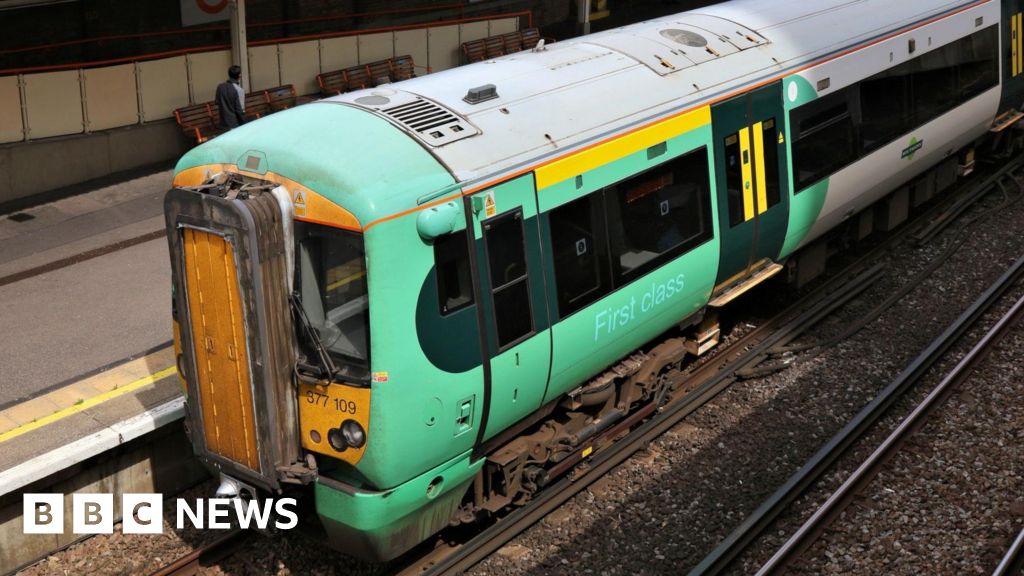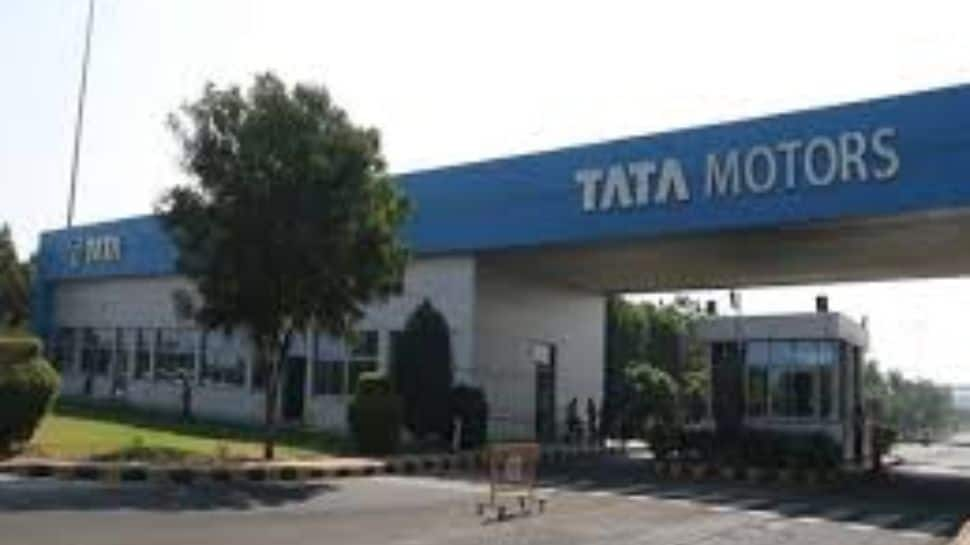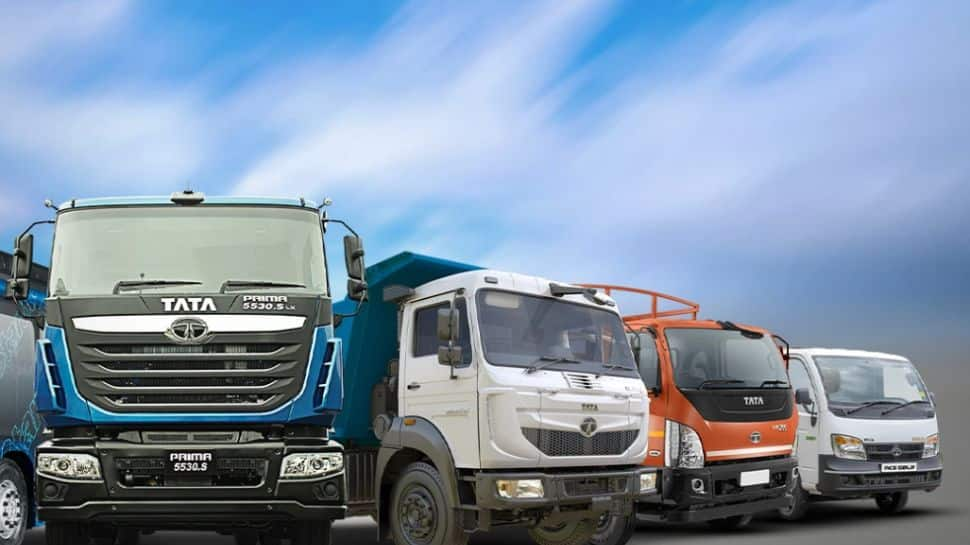Business
Tata Motors Shares Dip 3% As €2 Billion Loss From JLR Cyberattack May Exceed FY25 Profit

New Delhi: Shares of Tata Motors fell around 2.99 per cent in early trading on Thursday following reports that Jaguar Land Rover (JLR), its British subsidiary, could incur a potential uninsured loss of approximately €2 billion due to a cyberattack that disrupted production. The impact could surpass JLR’s total profit from the last fiscal year, said a report from The Financial Times.
JLR had not finalised a cyber insurance policy brokered by Lockton, potentially leaving the automaker uninsured for the attack, according to multiple media reports. The cyberattack, which occurred on September 2, has forced the company to repeatedly push back its production schedule. JLR announced it will extend factory closures until October 1 while addressing global IT issues and preparing for a phased restart of operations.
“We are working at pace to resolve global IT issues impacting our business. We will provide an update as appropriate in due course,” Tata Motors said in a statement earlier this month. The company’s three UK plants in Solihull, Halewood, and Wolverhampton used to produce approximately 1,000 cars daily, with reports estimating losses of around £50 million per week due to the plants being shut down.
JLR is carrying out a forensic investigation into the cyberattack and has said that operations will restart gradually in a controlled manner.
During FY25, Jaguar Land Rover contributed 72 per cent to Tata Motors’ total automotive revenue, higher than its contribution in FY24, indicating stronger growth at JLR compared to Tata’s domestic vehicle segment.
Meanwhile, in India, Tata Motors recorded approximately 10,000 car deliveries and over 25,000 enquiries on the first day of Navaratri, marking a strong start to the festive season. Over the past year, Tata Motors shares dipped Rs 300.90, a decline of 31.23 per cent.
Business
Instagram head questioned in LA social media addiction trial

Instagram’s longtime lead Adam Mosseri arrived on Wednesday at a courtroom in Los Angeles.
Source link
Business
Novo Nordisk CEO sees 15 million-patient opportunity in Medicare coverage for obesity drugs

Novo Nordisk CEO Mike Doustdar on Wednesday said the company is aiming to capture around 15 million new patients, at least initially, when Medicare starts covering obesity treatments for the first time later this year.
Around 67 million Americans are covered by Medicare, but “when you take a look at specifically our products and the target group, I think around 15 million people would be a good number to target,” he told CNBC in an interview.
Medicare is slated to start covering obesity medicines for the first time later this year under the landmark “most favored nation” drug pricing deals that Novo and its chief rival Eli Lilly struck with President Donald Trump in November.
Health experts say the long-awaited coverage could broaden the market for the medicines and spur more private insurers to cover them. Some experts estimate that 20 million to 30 million Medicare patients are suffering from obesity and related conditions.
Doustdar said Medicare coverage, along with the launch of Novo’s new obesity pill and other factors, should help the company gradually boost prescription volumes and offset lower prices in the U.S. following that agreement with Trump.
But he said he doesn’t expect Medicare access to obesity treatments to open up overnight.
“Now, it would be great if we could find a way to get access very, very fast. But I think that would be a bit naive,” Doustdar said, pointing to the slow adoption seen among eligible patients with commercial insurance.
It’s a slightly more conservative tone on the initial impact of Medicare coverage compared to Lilly, which has cited that coverage as a key tailwind to its guidance this year. Last week, Lilly said it expects Medicare coverage to come online by July.
Meanwhile, Doustdar said Novo is in the midst of negotiations with the government on “exactly which month, which week that is going to be opening.”
Closing the market share gap
Novo is under pressure to claw back market share in the booming GLP-1 space from Lilly and cheaper, compounded copycats. Last week, Lilly said its share of the U.S. obesity and diabetes drug market increased to 60.5% in the fourth quarter, while Novo’s was 39.1%.
Novo has also highlighted a gap in the “preference share” for its weight loss treatment Wegovy versus Lilly’s rival injections. In the U.S., Novo estimates that between 7 and 8 patients out of 10 go to Lilly.
When asked how Novo plans to close that gap, Doustdar said one way to do so is “to do better on the pill.” The company’s Wegovy obesity pill has a head start compared to Lilly’s upcoming oral drug, orforglipron, which is expected to win approval from the Food and Drug Administration during the second quarter.
Mike Doustdar, left, CEO of Novo Nordisk, and David Ricks, CEO of Eli Lilly, listen as President Donald Trump speaks in the Oval Office during an event about weight-loss drugs on Nov. 6, 2025.
Andrew Caballero-Reynolds | Afp | Getty Images
Doustdar said Novo’s pill is slightly more effective than Lilly’s based on separate clinical trials, showing 16.6% weight loss compared to 12.4% with Lilly’s oral drug.
“If you use these two numbers, basically you have a 40% difference between the efficacy of these pills,” he said. “I think this is going to be a very main, main selling point of the pill.”
But Doustdar also pointed to the upcoming approval and launch of a higher dose – 7.2 milligram – of Wegovy that could help win market share from Lilly’s obesity treatment Zepbound.
That higher dose helps patients lose around 21% of their weight, which is “very much on par” with the highest dose of Zepbound, he said. Zepbound’s higher efficacy has been a key factor in driving more patients and prescribers away from choosing Wegovy, which has shown around 15% weight loss on average in clinical trials.
“When that comes to the market, my thought, my wish, my hope is that people will realize, OK, now we have two products with similar efficacy,” he said.
Business
Serial rail fare evader fined £3,600 over 112 unpaid tickets

Charles Brohiri travelled without buying a ticket on 112 train journeys over a period of nearly two years.
Source link
-

 Entertainment5 days ago
Entertainment5 days agoHow a factory error in China created a viral “crying horse” Lunar New Year trend
-

 Business1 week ago
Business1 week agoNew York AG issues warning around prediction markets ahead of Super Bowl
-

 Fashion1 week ago
Fashion1 week agoIntertextile Shanghai 2026 to debut pet boutique zone
-

 Fashion1 week ago
Fashion1 week agoICE cotton slides as strong dollar, metal sell-off hit prices
-

 Business5 days ago
Business5 days agoStock market today: Here are the top gainers and losers on NSE, BSE on February 6 – check list – The Times of India
-

 Tech5 days ago
Tech5 days agoNordProtect Makes ID Theft Protection a Little Easier—if You Trust That It Works
-

 Tech5 days ago
Tech5 days agoPrivate LTE/5G networks reached 6,500 deployments in 2025 | Computer Weekly
-

 Business1 week ago
Business1 week agoWhy Are Gold Prices Swinging? Nirmala Sitharaman Breaks It Down












